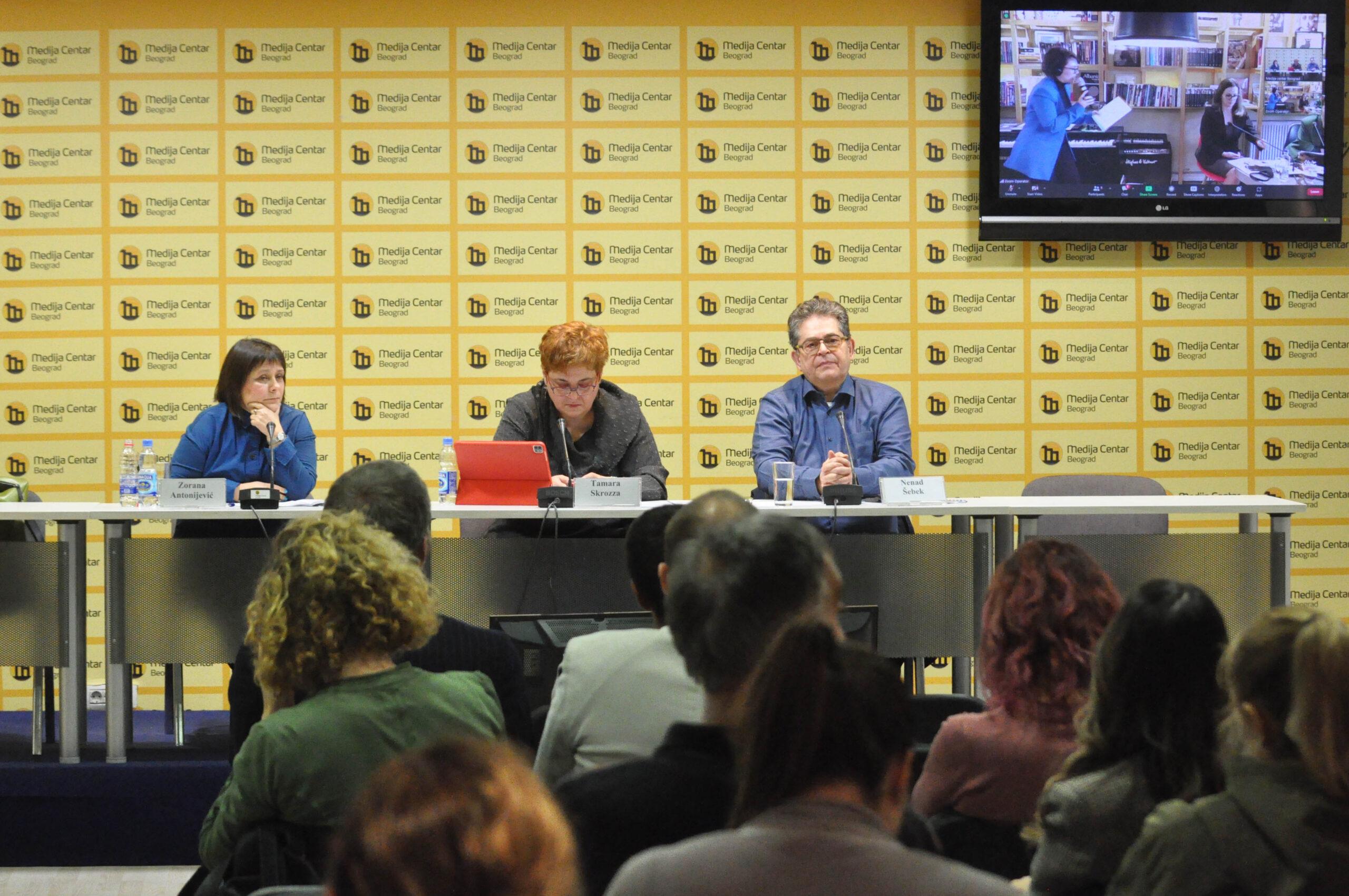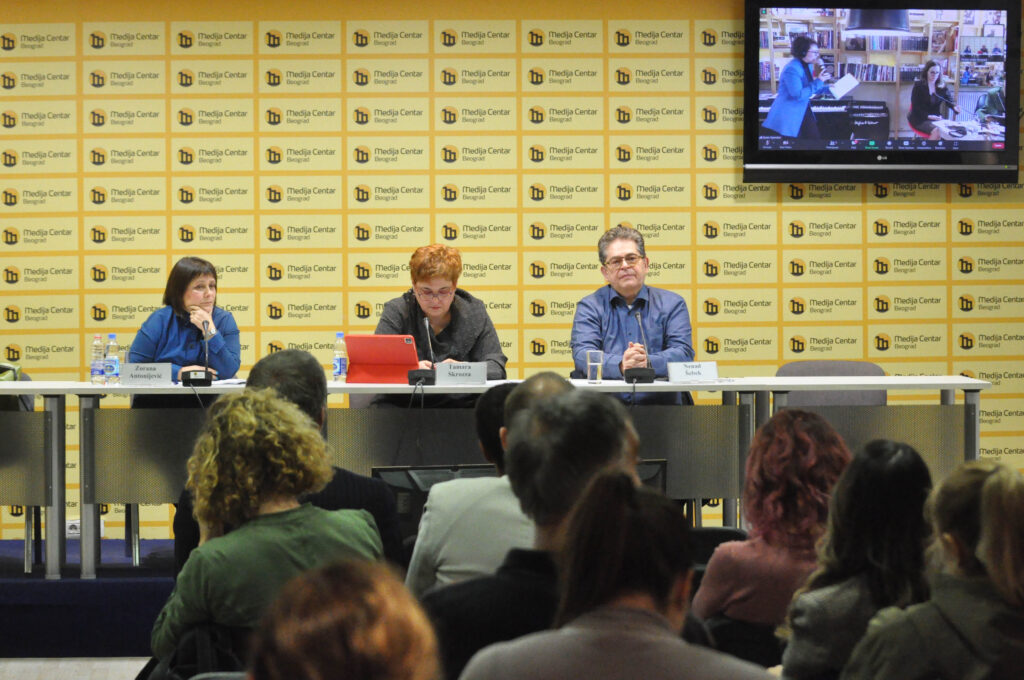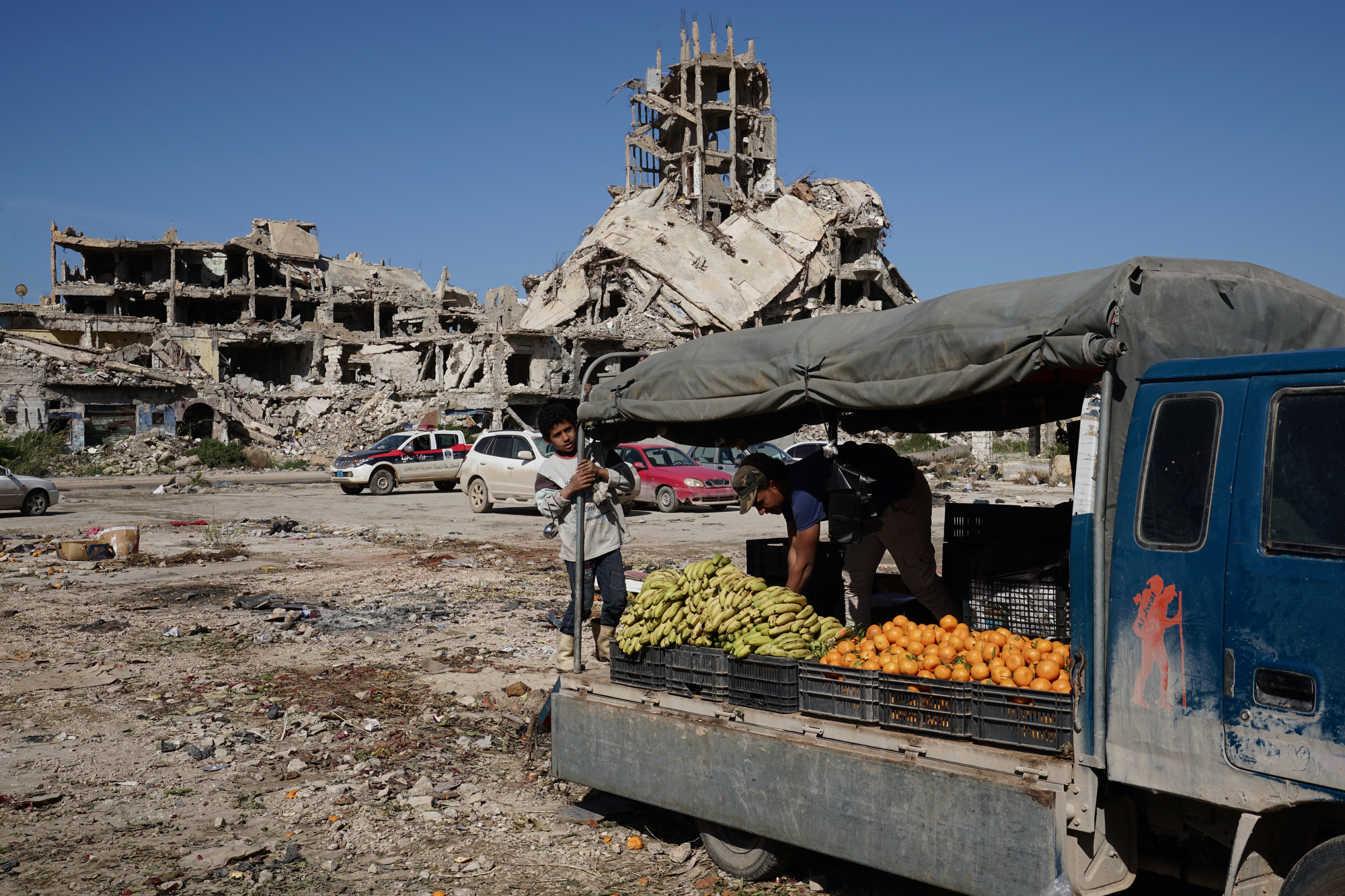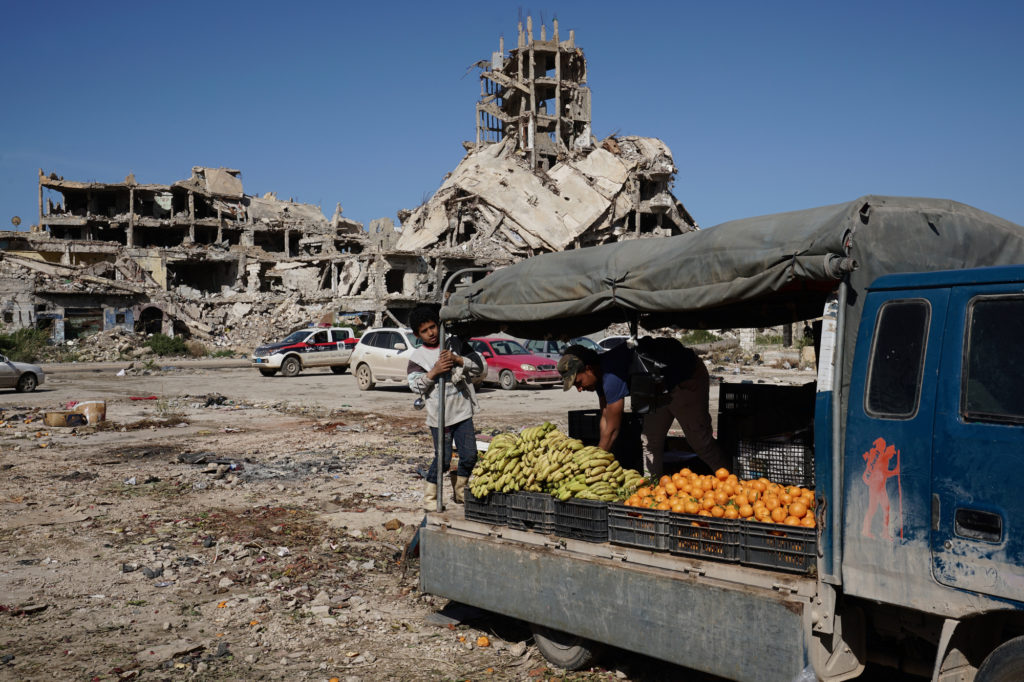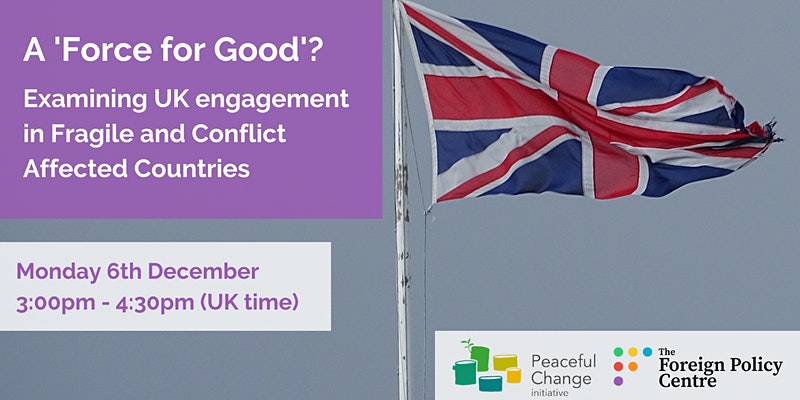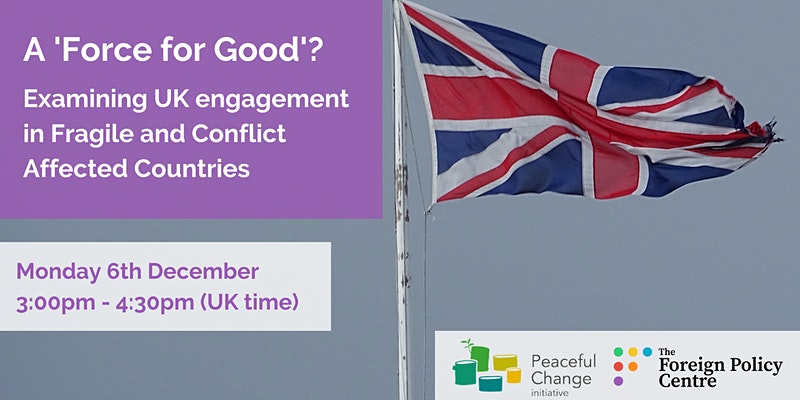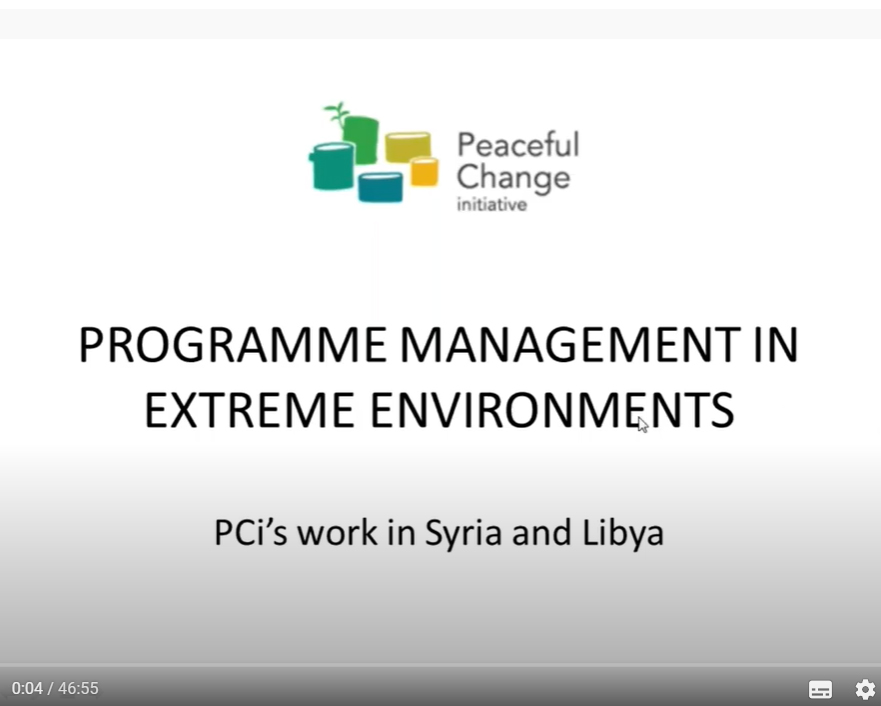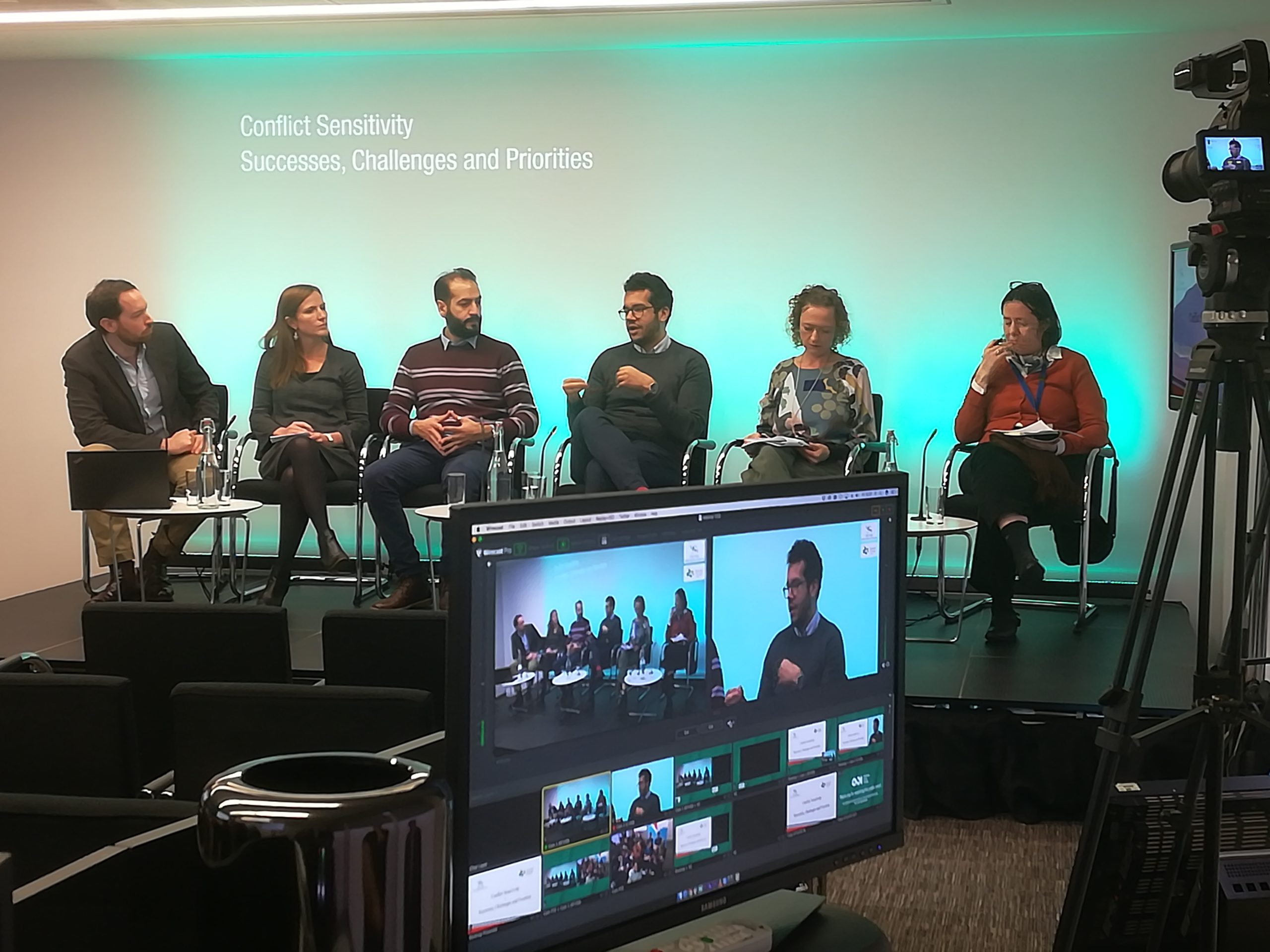
Peaceful Change initiative hosted a virtual discussion to present our latest case study: Strengthening media as a stakeholder in peacebuilding, showcasing our experience in fostering collaboration among media organizations in Kosovo.
The study – conducted as part of the Amplifying Local Voices for Equitable Development (ALVED) project, funded by the UK government – offers insights into the role of international support in enhancing the impact of independent media on democratization, inter-communal relationships, and peacebuilding.
The presentation explored the rational for pursuing media partnerships, with respect to reducing segmentation of the media space, overcoming resource limitations, providing alternative approaches to content generation, and understanding shared audience interests. It also explored the evolution of partnerships, a reflection on the shared interests of the respective partners, the challenges of forging integrated partnerships, and an understanding of the shortcomings of such approaches.
A subsequent discussion analysed whether media partnerships are a viable means of supporting the development of independent media in the Western Balkans, and how they can better complement existing initiatives in this area. The discussion also focused on how such partnerships be harnessed to tackle more sensitive and contentious issues, especially where cross-community issues are concerned.
The case study, which delves deeper into these findings, is available for download from the following link: Strengthening media as a stakeholder in peacebuilding.
Date & Time: Jan 30, 2024 10:00 AM (GMT)
Location: Zoom meeting
Introduction by Richard Le Vay, Head of Internal Politics and Communications, UK Embassy in Kosovo.
Speakers:
- Ian Bancroft, Project Manager for the Western Balkans, Peaceful Change initiative
- Darko Dimitrijević, Radio Goraždevac
- Luljeta Gjonbalaj, USAID
- Ariana Caka, EU Office
Moderated by Nenad Sebek, Senior Adviser for the Western Balkans, Peaceful Change initiative
For further enquiries, please contact Ian Bancroft – ian.bancroft@peacefulchange.org. If you would like to receive email updates about our upcoming publications in the Learning from peacebuilding in Kosovo and Serbia series, please sign up to our mailing list on this link.

